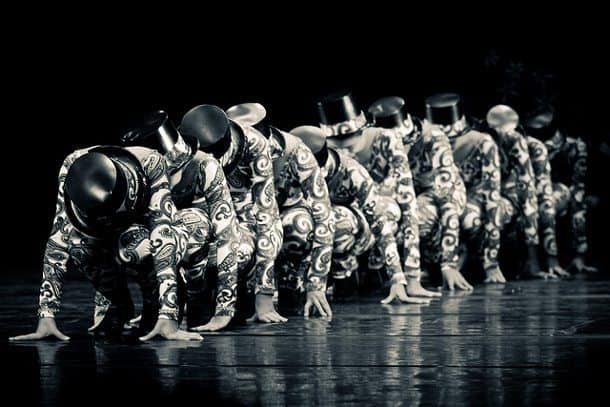
When I was a little kid, my mother worked as a freelance church organist. She hired herself out to the highest bidder each year. So now when people ask me about my religious background, I say Methodist. I also say Baptist, Presbyterian, and Congregationalist, and for two weekends every year I even attended Temple.
Anyway, regardless of the denomination of her current employer, my mother had this unique way of speaking about her work. She never referred to it as playing a church “service.” She always talked about Sunday morning church services as being… “a show.”
When I was old enough to care, I asked her, “Mom, why do you call it a show? Everyone else says it’s a ‘service’.”
She replied, “you have an overture, you have dialog, you have songs, there’s choreography, a guy does a standup routine for 25 minutes, and then you have the big finale. That’s a show.”
So — my mother’s blasphemous cynicism aside — for you, dear reader, here is my question: Are your events . . . a show?
The reason I ask is, many “events” are really just a collection of classes. In terms of form, it’s very much like going back to high school. Every hour, you shuffle into a room, you sit in a chair, and someone stands up at the front and gives a little scholarly lecture. Presumably, the “value” is in the data, not in the entertainment. That’s a class, it’s not a show.
I have no objection to the classroom format per se, but I grew up in show business. As a speaker, I consider myself to be a performer, not a lecturer, and to me a series of classes is not an “event.” It’s a school. And since every kid in America from age 5 to 16 takes classes all day every day, there’s really nothing special about school.
So, for what it’s worth, let me give you a few pointers as to how you can convert your classroom “event”… into a “show.”
The Form
In showbiz, well, there is always a broad sense of FORM. Time and energy is not linear — it moves in arcs and waves: It must be portioned out so as to maintain audience focus. The longest show you might do is a ballet or an opera, which is three hours 15 minutes. But that is always broken up into three acts, and at the end of the first and second act some kind of dramatic dissonance is presented that leaves you absolutely dying to know how it will resolve itself. You go out to the lobby for 20 minutes to hobnob and have a drink, and then you go back in to find out what the villain is up to next. Anything that isn't essential to the flow of the plot is cut.
Anything that isn't essential to the flow of the plot is cut.
People who are steeped in “classroom conditioning” really don’t get the concept of an arc of time being an integral part of a show. For example, with one of the actual “package shows” that I rent to orchestras, I'm often asked if I can cut 15 minutes from it in order to accommodate the bus drivers. They have no concept of a performance being an organic entity that takes a set amount of time. It’s like asking someone to do half a somersault. You can’t play Beethoven’s Fifth Symphony in 10 minutes.
But just as you can’t go short, going long is even worse. In a class, the content is adjusted to suit the time limit, but in a show, the time is adjusted to maximize the audience energy. An audience’s attention span and ability to focus on anything is limited, so it must be used wisely. If you abuse it, you’ll lose it all together. Overly long introductions kill energy. And in terms of “form,” a show of any length typically has one big climactic scene. If the climactic scene is the idea you are presenting, well, you still need to build up to that, and if you add too many other ideas you dilute the effect. Effective communication of either a thought or an emotion pretty much follows the same rules of performance form. Too many characters or subplots, or just taking too long to get there, can ruin the overall effect.
The Overture
Another obvious element of a show is having an overture or a warmup act. If you go to any big pop music concert or TV show taping, they will typically have an up-and-coming comedian come out to “warm up” the crowd. This doesn’t happen in classrooms because it’s presumed that everyone is going to sit there very passively. But in the show, you want people to be excited and focused when the show starts, and you don’t take that for granted. You build anticipation, you sell the excitement. It typically takes at least 15 minutes to convert a crowd from focusing on their seat, their popcorn, and arguing with their spouse about why they parked so far away to being ready to watch the show. Again, audience warmup takes a certain amount of time, and you can’t really rush it.
Our collective “classroom conditioning” creates a fairly low bar of expectation, for both presenters and audiences. And now, with so much information available online, gathering in a “class” only for the purpose of acquiring information, well, it’s slowly becoming obsolete, and is therefore getting harder and harder to sell. But people love to get together and have a tribal connection experience. Show business is booming. There’s no reason why you can’t incorporate your classroom information into that format, and when you do that, wow, what a great show… er, event.
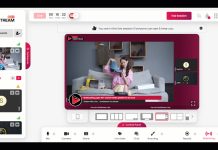

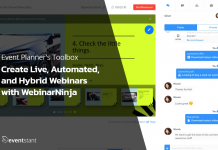
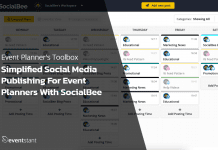

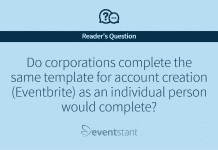

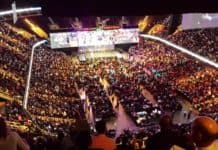

![How Important Are Face to Face Meetings [INFOGRAPHIC]](https://eventstant.com/wp-content/uploads/faceToface_v11-sm-218x150.jpg)









